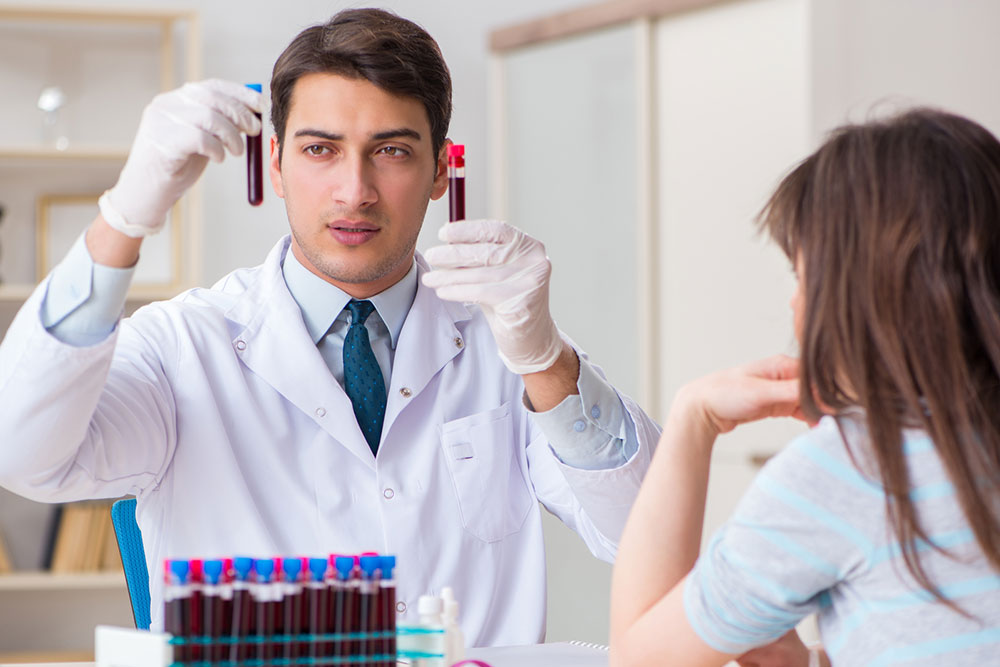
11 uncommon signs of blood cancer to watch out for
Blood cancer is a group of diseases that affect the production and function of blood cells in the body. The three primary types of blood cancer are leukemia, lymphoma, and multiple myeloma. While many people are familiar with common symptoms of blood cancer, like frequent infections and unexplained loss of body mass, some uncommon signs can also be indicative of blood cancer. Let’s look at some signs that should prompt one to seek immediate medical help.
What is blood cancer?
There are three types of blood cells: red (RBCs), which carry oxygen to the body; white (WBCs), which fight off infections; and platelets, which help with blood clotting post injury. Any abnormal and excess production of these cells that affects their normal functioning is blood cancer. Leukemia often involves abnormal production of blood cells in the bone marrow, resulting in a low platelet count. Lymphoma affects the lymphatic system, which includes lymph nodes, spleen, and other lymphoid tissues. Multiple myeloma, on the other hand, affects a type of white blood cell called plasma, which is responsible for producing antibodies. Each cancer type is classified further based on several factors, including the part of the body where the cancer originates and the specific blood cells affected.
Uncommon symptoms of blood cancer
Unexplained itching
Unexplained itching is one of the signs of blood cancer, particularly lymphoma. Itchy skin can occur due to various reasons, but when it is persistent and not related to any apparent external causes like allergies or dry skin, it may signal an underlying health issue. In lymphoma, the immune system is compromised, leading to the release of certain chemicals that can cause itching. This itching can be widespread or localized and is often accompanied by redness and a burning sensation.
Petechiae
Petechiae is a medical term for small red or purple spots under the skin, which are unraised and usually appear first on the legs. It can be a subtle sign of blood cancer, particularly leukemia. Platelets are responsible for blood clotting, and when their numbers are diminished, easy bruising, and petechiae can occur. While these skin abnormalities can have other causes, including nutritional deficiencies, if they persist or are accompanied by other unusual symptoms, it is crucial to seek medical advice.
Ecchymosis
Ecchymosis refers to larger, bruise-like discolorations on one’s skin. This is an uncommon symptom of leukemia that can occur due to platelet dysfunction.
Bone pain
Experiencing discomfort and pain in the bones is another uncommon symptom of blood cancer. It is more commonly associated with multiple myeloma, which often leads to the weakening of bones and the development of bone lesions. These abnormalities can cause persistent pain, particularly in the back, hips, and ribs. As the condition progresses, it can lead to fractures and additional complications. Early diagnosis and treatment are crucial in managing bone pain associated with multiple myeloma.
Fatigue and weakness
While fatigue is a common symptom in many illnesses, it can also be a sign of blood cancer when it is particularly severe and persistent. Fatigue in blood cancer does not seem to get better even after proper rest and can also be accompanied by other uncommon symptoms.
Dizziness and pale skin
Anemia is a common occurrence in various blood cancers and is typically caused by abnormal blood cell production. It is a condition wherein the blood does not carry enough oxygen to the body’s tissues. Typical symptoms of anemia include dizziness, pale skin, and shortness of breath, which can all be underlying symptoms of blood cancer.
Swollen gums and mouth sores
Mouth sores and swollen gums are notable symptoms that can be associated with leukemia. Leukemia decreases the production of healthy white blood cells, which are critical for fighting infections and maintaining oral health.
Night sweats
Severe night sweats that soak through one’s clothing and bedding and disrupt sleep can also be associated with lymphoma. This happens because the white blood cells cannot fight infections, which can hike one’s body temperature and take a lot of time for inexplicable fever associated with cancer to subside.
Enlarged lymph nodes
Enlarged lymph nodes, also known as lymphadenopathy, can be a sign of blood cancer, particularly lymphoma. The lymph nodes are small, bean-shaped structures that help filter harmful substances from the body. In lymphoma, these nodes can become enlarged and painful. They are typically found in the neck, armpits, and groin but can occur in other areas as well. While enlarged lymph nodes develop due to several causes, including infections, if they persist and are accompanied by other concerning symptoms, it’s essential to seek medical advice.
High levels of calcium in blood
Multiple myeloma can lead to hypercalcemia, which is a condition marked by elevated levels of calcium in the bloodstream. It can result in symptoms such as nausea, increased thirst and urination, constipation, decreased appetite, weakness, and confusion. Additionally, this condition can harm the kidneys, and proteins produced by cancer cells may result in shortness of breath, itchy skin, and swollen ankles.
Swollen abdomen
A swollen abdomen can be an uncommon sign of blood cancer, particularly in cases of lymphoma or leukemia. One may also feel full after eating small amounts of food. This symptom can result from the enlargement of organs or an accumulation of fluid in the abdominal cavity. Blood cancer can affect the liver and spleen, leading to abdominal distension. Additionally, lymphoma can lead to fluid retention in the abdominal area.
Early diagnosis is critical for effective treatment and improving the chances of a successful outcome. If one’s experiencing these uncommon signs, it is vital to consult a healthcare professional for a thorough evaluation and appropriate diagnostic tests. Blood cancer is a complex disease, and the earlier it is identified, the better the chances for successful treatment and recovery.







